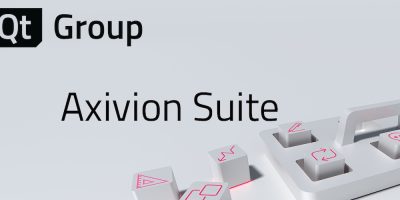Qt Group introduces the latest release 7.7 of Axivion Suite
Qt Group introduces the latest release 7.7 of Axivion Suite with key features for increased safety and security, enhanced user-friendliness, and extended compatibility. With this latest update, the static code analysis and architecture verification tools within Axivion Suite cover 100% of all automatically testable MISRA C rules and for the majority of the new MISRA C++ standard. Furthermore, the tool suite extends its support for CLion, integrates the latest EDG C/C++ parser frontend and incorporates more proven Qt-specific security rules for enhanced security.
Axivion Suite from Qt Group comprises efficient and powerful static code analysis and architecture verification tools, empowering embedded software developers to ensure the long-term quality of their code. One of the most significant features of the tool suite is its consistent alignment with the most important safety standards, such as MISRA. The MISRA checker in Axivion Suite 7.7 covers 100% of all automatically testable MISRA C:2012 and MISRA C:2023 rules, enabling developers to actively prevent software-related failures that can lead to accidents or malfunctions. The tool suite also continues expand its support for the new MISRA C++:2023 standard to achieve complete coverage of all automatically testable rules.
In addition to its extensive support of various IDE plugins including CLion, Axivion Suite 7.7 now introduces single-file analysis within CLion with dashboard components and local build support, aligning it with the capabilities of the tool suite. Furthermore, the tool suite adds the latest EDG C/C++ parser frontend for ensuring compatibility with the most recent compiler versions, such as the GNU Compiler Collection (GCC) 13.1. For developers working with C#, Axivion Suite 7.7 now extends its support to C#10.
By establishing their own security rules, Qt Group aims to actively contribute to improving cybersecurity in systems developed with their tools. Now, Axivion Suite 7.7 has incorporated those established Qt-specific security rules into their analysis tools, too. Developers who are already familiar with other Qt Software Development tools can now easily use the static code analysis and architecture verification tools in their projects and further fortify their code against potential vulnerabilities. These Qt-specific security rules will be expanded in future releases.
With a new setup GUI, developers can efficiently manage their configuration files directly within the user interface and add, remove or re-order layers – without manual work in the text editor. Additional user-friendly enhancements in the tool suite include the new Enterprise Architect (EA) importer for QEA files, an additional metric with LCOM4, and an improved time zone support.
For more information about Axivion Suite with its static code analysis and architecture verification tools, please visit http://www.qt.io/axivion.




